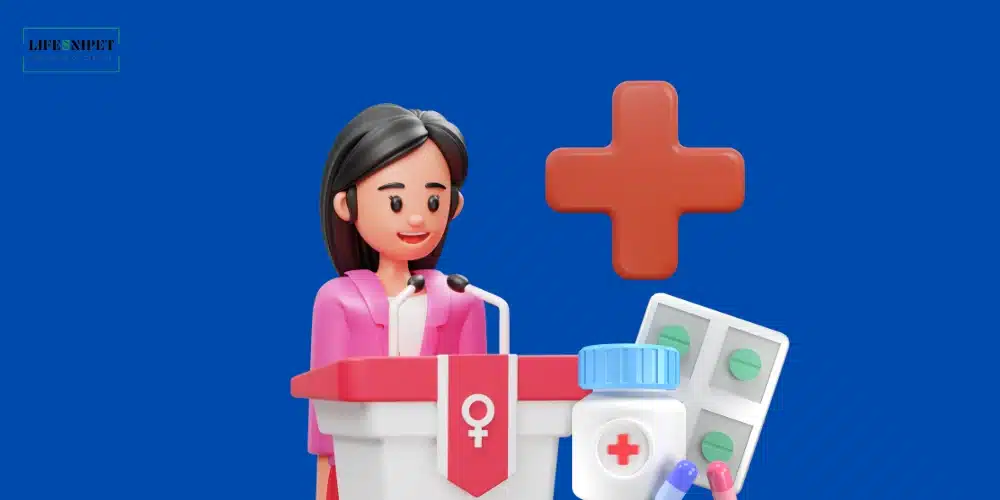In the panorama of healthcare, women’s health emerges as a paramount concern, meriting our undivided attention and comprehensive understanding. Historically, the medical community has overlooked the unique dimensions of women’s health, often treating it as merely a subset of general health. Yet, the reality is that women’s health encompasses a broad spectrum of issues, distinctively influenced by a combination of biological, social, and psychological factors. My journey into exploring women’s health began with a personal quest to understand my body and the specific challenges it faces, leading me to realize the power of knowledge and awareness in shaping our health outcomes. In this article, I invite you on a voyage of discovery, to delve into the complexities of women’s health, unravel the common health issues we face, and explore ways to empower ourselves through education, preventive care, and supportive resources.
The Importance of Prioritizing Women’s Health
The imperative to prioritize women’s health cannot be overstated. Our well-being influences not just our own lives, but also the health and happiness of our families and communities. The intricate nature of women’s health, with its unique physiological and hormonal considerations, demands a tailored approach to health care and wellness. Prioritizing women’s health is tantamount to recognizing the role of women in society and ensuring their ability to lead fulfilling, healthy lives. It’s about dismantling barriers to access and advocating for research and healthcare practices that address women’s specific health needs. My advocacy for women’s health is driven by the belief that informed women are empowered to make better health decisions, leading to improved outcomes for all.
Common Health Issues Faced by Women
The tapestry of women’s health is interwoven with a variety of issues, some of which disproportionately affect women or manifest differently compared to men. Conditions such as breast cancer, cervical cancer, osteoporosis, and autoimmune diseases are more prevalent among women, highlighting the need for focused research and specialized care. Additionally, women are more susceptible to certain mental health challenges, including depression and anxiety, often exacerbated by societal pressures and hormonal changes. My exploration of these issues has not only heightened my awareness but also fueled my commitment to advocating for comprehensive healthcare solutions that address the unique needs of women.
Understanding the Female Reproductive System
The female reproductive system is a marvel of complexity and function, playing a central role in women’s health. Understanding its intricacies is foundational to addressing the broader aspects of women’s health. The system’s components, including the ovaries, fallopian tubes, uterus, and vagina, work in concert to regulate menstruation, fertility, and childbirth. Hormonal changes throughout a woman’s life, from menarche to menopause, have profound effects on her physical and emotional well-being. My journey into understanding the female reproductive system has underscored the importance of education in empowering women to make informed decisions about their reproductive health.
Women’s Health Screenings and Preventive Care
Preventive care and regular health screenings are cornerstone practices in safeguarding women’s health. Mammograms, Pap smears, bone density tests, and screenings for sexually transmitted infections (STIs) are among the critical tools available for early detection and prevention of diseases. These screenings represent more than just medical appointments; they are acts of self-care, empowering women to take proactive steps toward their health. My experiences with health screenings have taught me the value of prevention as a pathway to peace of mind and better health outcomes.
Maintaining a Healthy Lifestyle for Women
A healthy lifestyle is the bedrock of women’s health, encompassing a balanced diet, regular physical activity, adequate sleep, and stress management. The specific nutritional and exercise needs of women vary depending on age, reproductive status, and overall health. Embracing a holistic approach to wellness, one that integrates mental, physical, and emotional health, is essential. My commitment to a healthy lifestyle has not only enhanced my physical well-being but also enriched my life with greater energy and vitality.
Mental Health and Self-Care for Women
Mental health is an integral component of women’s health, deserving of the same attention and care as physical health. The stigma surrounding mental health issues often prevents women from seeking the help they need. Self-care practices, such as mindfulness, meditation, and seeking professional support, are vital tools in managing stress and enhancing mental well-being. My practices of self-care have been transformative, enabling me to navigate life’s challenges with resilience and grace.
Empowering Women Through Education and Awareness
Education and awareness are powerful agents of change in the realm of women’s health. By equipping ourselves with knowledge, we are better positioned to advocate for our health needs, make informed decisions, and influence policy and research priorities. My passion for women’s health is fueled by a desire to see a world where every woman has access to the information and care she needs to thrive.
Resources and Support for Women’s Health
A wealth of resources and support networks are available to women, offering guidance, information, and community. Organizations, healthcare providers, and online platforms provide valuable tools for women seeking to improve their health and well-being. My journey has been enriched by the support of women’s health communities, which have offered not just information but also encouragement and solidarity.
Conclusion: Taking Charge of Your Well-being as a Woman
As we journey through the multifaceted landscape of women’s health, it becomes clear that our well-being is in our hands. The empowerment of women through education, preventive care, and supportive resources paves the way for a healthier and more fulfilling life. By prioritizing our health, advocating for our needs, and supporting one another, we can overcome challenges and seize control of our well-being. Let us embrace this journey with courage, knowledge, and the conviction that we can achieve optimal health and wellness together.
FAQs
Q: How often should women undergo health screenings?
A: The frequency of health screenings for women varies depending on age, health history, and specific risk factors. It’s essential to consult with a healthcare provider to determine the appropriate schedule for screenings such as mammograms, Pap smears, and bone density tests.
Q: What are some key nutritional considerations for women?
A: Women’s nutritional needs change throughout their life stages and may require increased intake of certain nutrients, such as iron, calcium, and vitamin D. A balanced diet rich in fruits, vegetables, whole grains, and lean proteins is fundamental to women’s health.
Q: How can women proactively manage their mental health?
A: Proactive management of mental health for women can include regular exercise, mindfulness practices, seeking social support, and professional counseling when needed. Recognizing the signs of mental health issues and seeking help early is crucial.

Welcome to LifeSnipet! At LifeSnipet, we’re your ultimate source for the latest health updates. Specializing in health and fitness-related diseases, we delve deep into Ayurvedic techniques, providing you with a comprehensive understanding of well-being. Explore our real-time updates, detailed articles, and ancient Ayurvedic wisdom for a holistic approach to health. Embark on a journey to a healthier, vibrant life with LifeSnipet – where your well-being is our priority!











